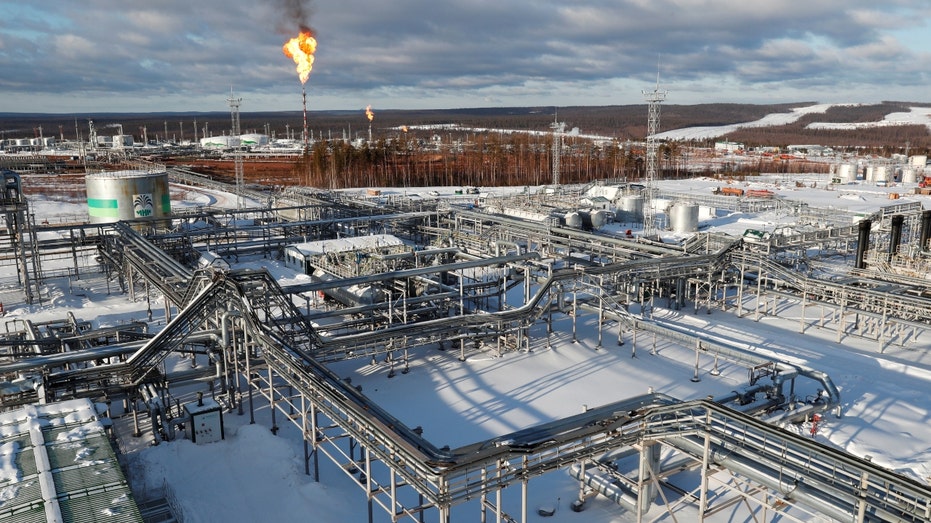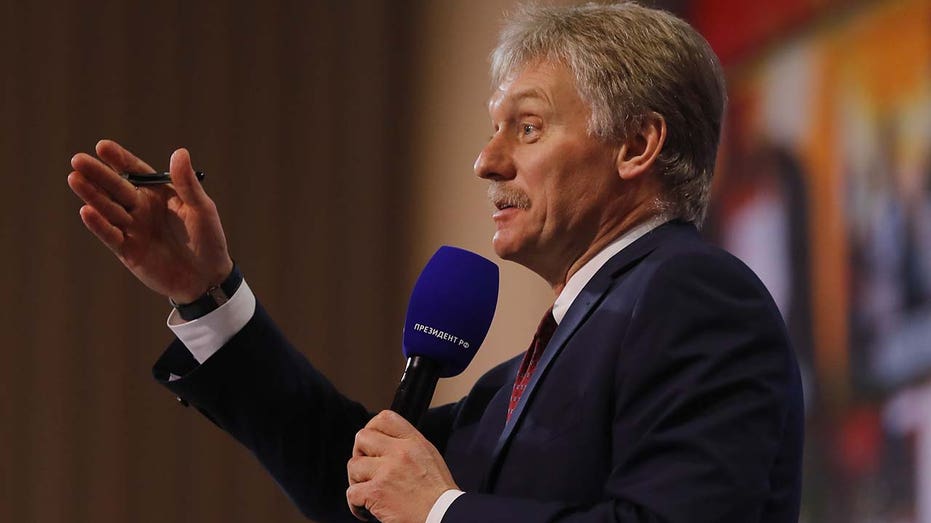Kremlin rejects EU oil price cap: 'Europe will live without Russian oil'
Russia claims it has already taken precautions to circumvent an international oil cap
Ukraine war will cost Putin his power in Russia: Lt. Gen. Jerry Boykin
Former Delta Force Commander Lt. Gen. Jerry Boykin discusses if Putin is open to negotiations to end the Ukraine conflict and if U.S. sanctions on Russia are enough on 'Cavuto: Coast to Coast.'
The Kremlin on Saturday rejected the European Union’s plan to cap Russian oil prices at $60 a barrel as it looks to starve Moscow’s war chest and warned "Europe will live without Russian oil."
"Moscow has already made it clear that it will NOT supply oil to those countries who support anti-market price cap," Mikhail Ulyanov, Russia's permanent representative to International Organizations in Vienna said in a Saturday tweet.
The agreement reached Friday by the EU will reportedly set the stage for additional measures by the G7 to target Russia as it continues its deadly war in Ukraine.
EU REACHES AGREEMENT ON $60-PER-BARREL PRICE CAP ON RUSSIAN OIL

A general view shows an oil treatment plant in the Yarakta Oil Field, owned by Irkutsk Oil Company (INK), in Irkutsk Region, Russia March 10, 2019. (REUTERS/Vasily Fedosenko / Reuters Photos)
World leaders sought to balance a plan that would hit the Kremlin’s top earner while also allowing some Russian oil to remain in the market amid global fears over soaring energy costs and inflation.
The price cap effectively blocks all Western companies from insuring, financing or shipping Russian oil unless it is sold for less than $60 a barrel – a stipulation that will likely be felt in Russia given the more than $85 a barrel price tag listed Saturday under Brent, the international benchmark for crude oil.
Kremlin spokesperson Dmitry Peskov echoed Ulyanov’s comments and told reporters Saturday that they were "assessing the situation" and noted that "certain preparations" had already been made in case an oil price cap was established.
Peskov did not detail what precautionary measures the Kremlin has taken but said, "We will inform you how the work will be organized once the assessment is over," reported TASS.
Though each member of the EU had to sign off on the Friday agreement, not all nations felt the cap hit Russia hard enough.

MOSCOW, RUSSIA - DECEMBER 17: Kremlin spokesman Dmitry Peskov is seen as a moderator of Russian President Vladimir Putin's annual press conference in Moscow, Russia on December 17, 2020. (Photo by Sefa Karacan/Anadolu Agency via Getty Images / Getty Images)
US TREASURY SEEKS PHASED G-7 OIL SANCTIONS AS EU BAN LOOMS
Some nations like Poland and the Baltic States pushed for a stricter cap at $30 a barrel and Estonian Prime Minister Kaja Kallas pointed out that every dollar removed in the cap amounted to $2 billion less in Russia’s war chest.
Despite some concern that the cap could drive up prices by draining the oil market, U.S. Treasury Secretary Janet Yellen argued that the new limits will help lower the price of oil globally.
"The price cap will encourage the flow of discounted Russian oil onto global markets and is designed to help protect consumers and businesses from global supply disruptions," she said, arguing it will help lower and middle income nations the most that have "borne the brunt" of rising energy prices.
"Whether these countries purchase energy inside or outside of the cap, the cap will enable them to bargain for steeper discounts on Russian oil," she added.

Russian President Vladimir Putin attends a meeting on economic issues via videoconference at the Novo-Ogaryovo residence outside Moscow, Russia, on Tuesday, June 7. (Mikhail Metzel, Sputnik, Kremlin Pool Photo via AP / Associated Press)
CLICK HERE TO GET THE FOX BUSINESS APP
Russia's embassy in the U.S. called her comments "arrogant" and alleged the move was "dangerous," claiming that Russia will continue to find buyers for its oil.
"Steps like these will inevitably result in increasing uncertainty and imposing higher costs for raw materials' consumers," the embassy added.





















